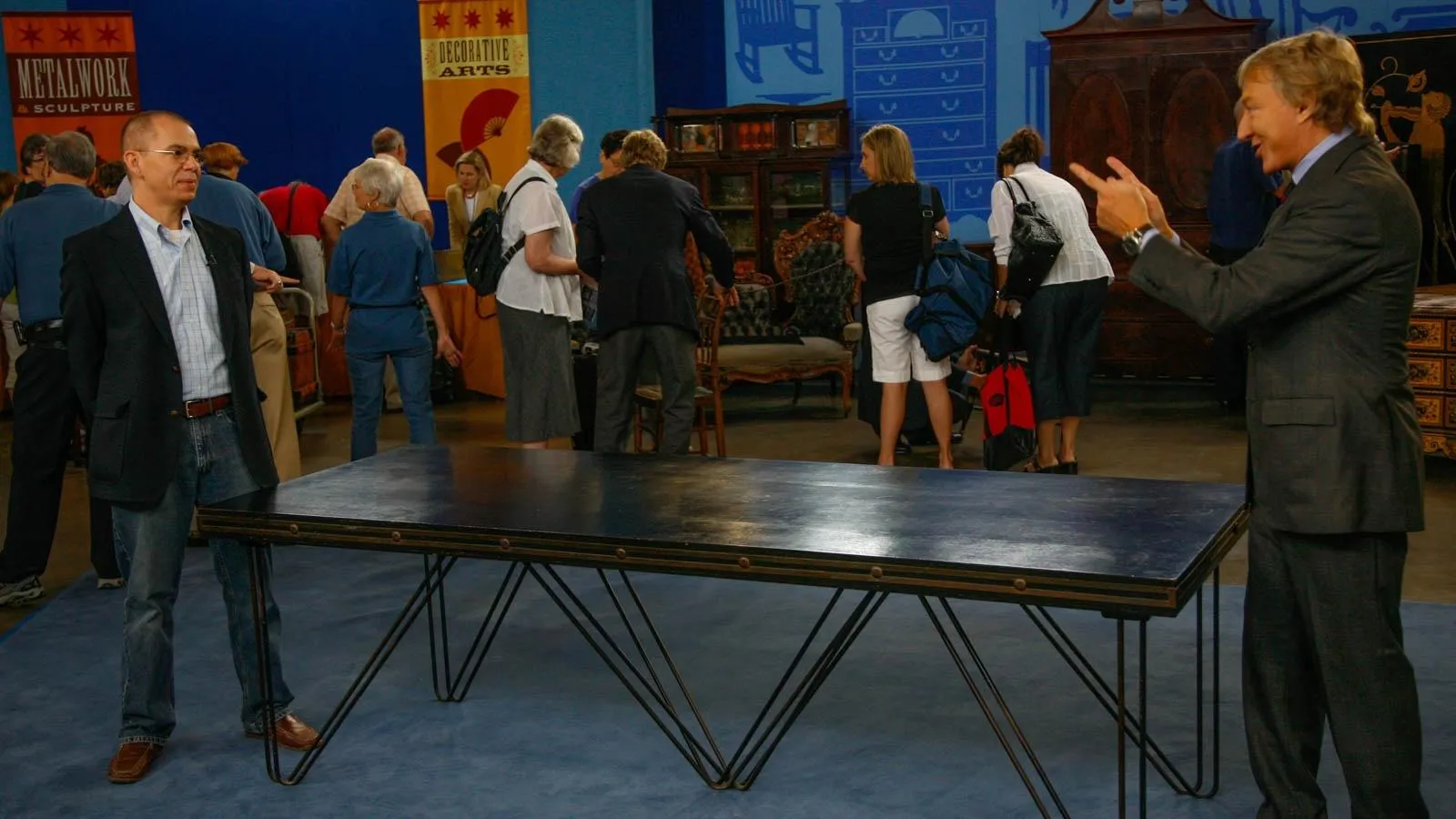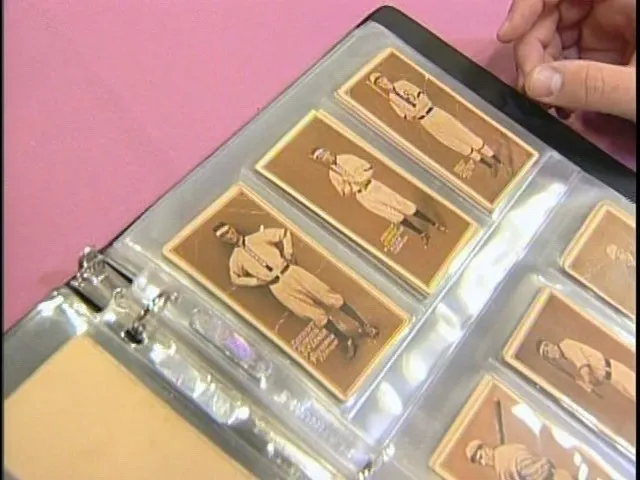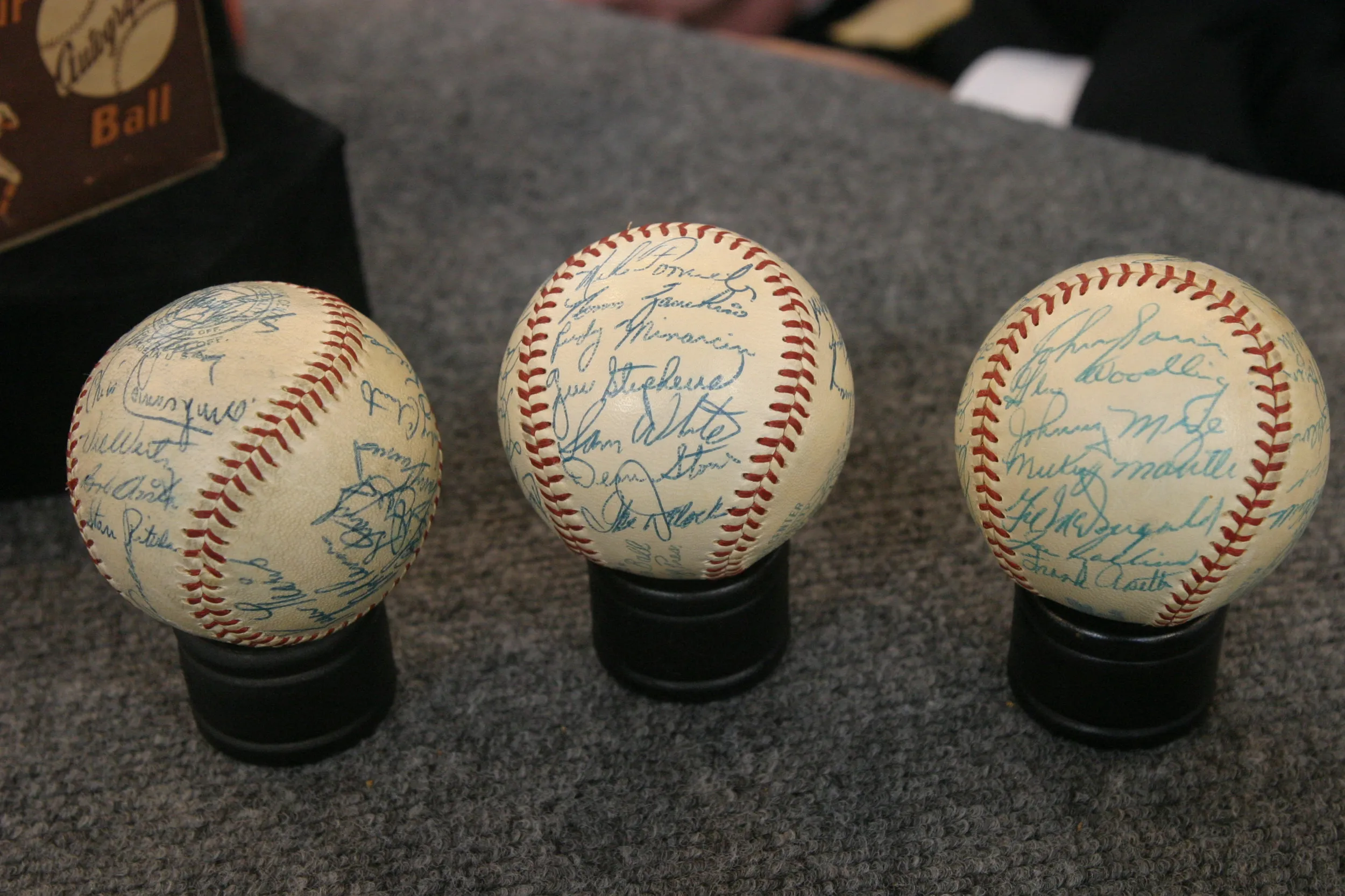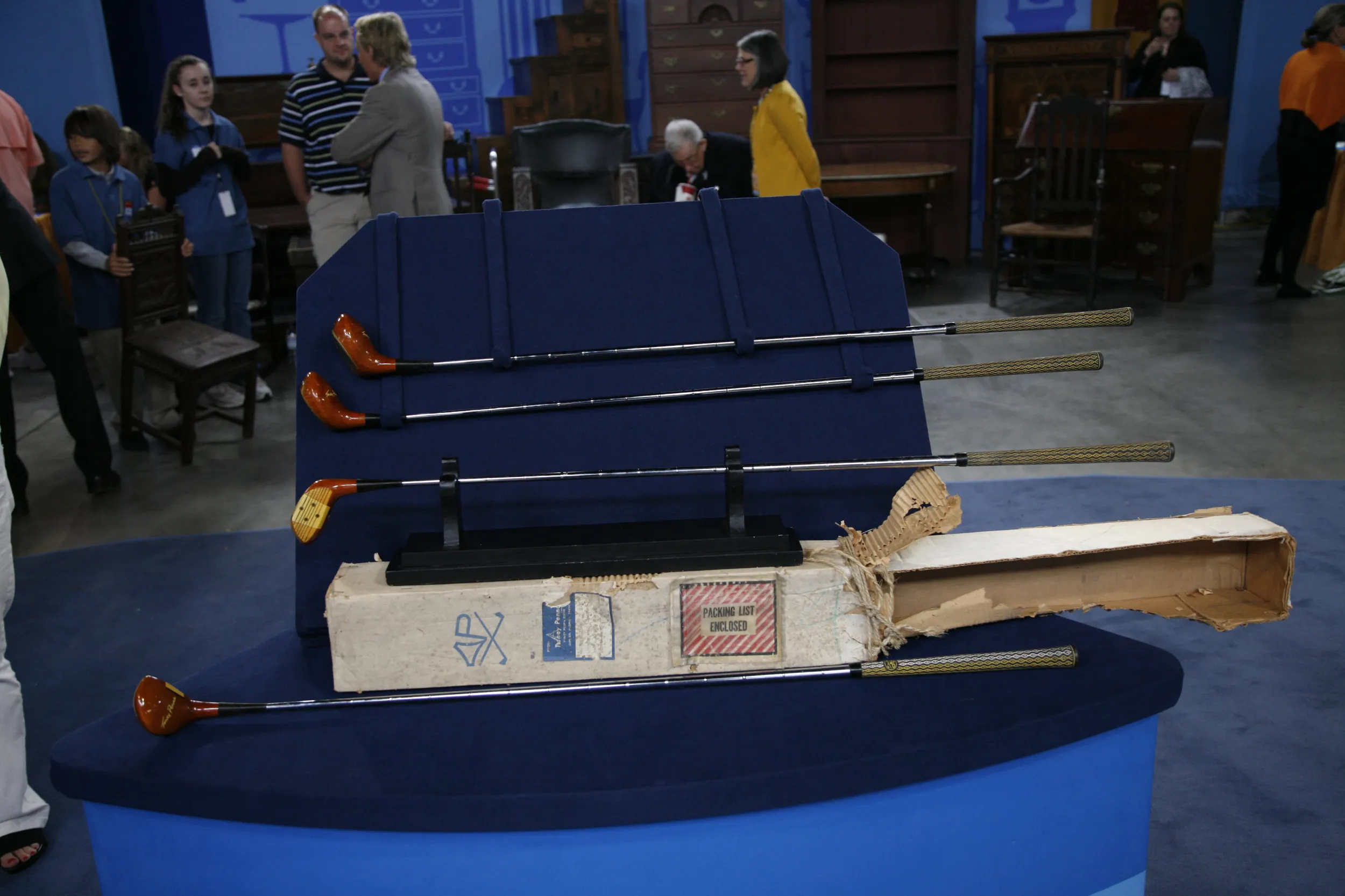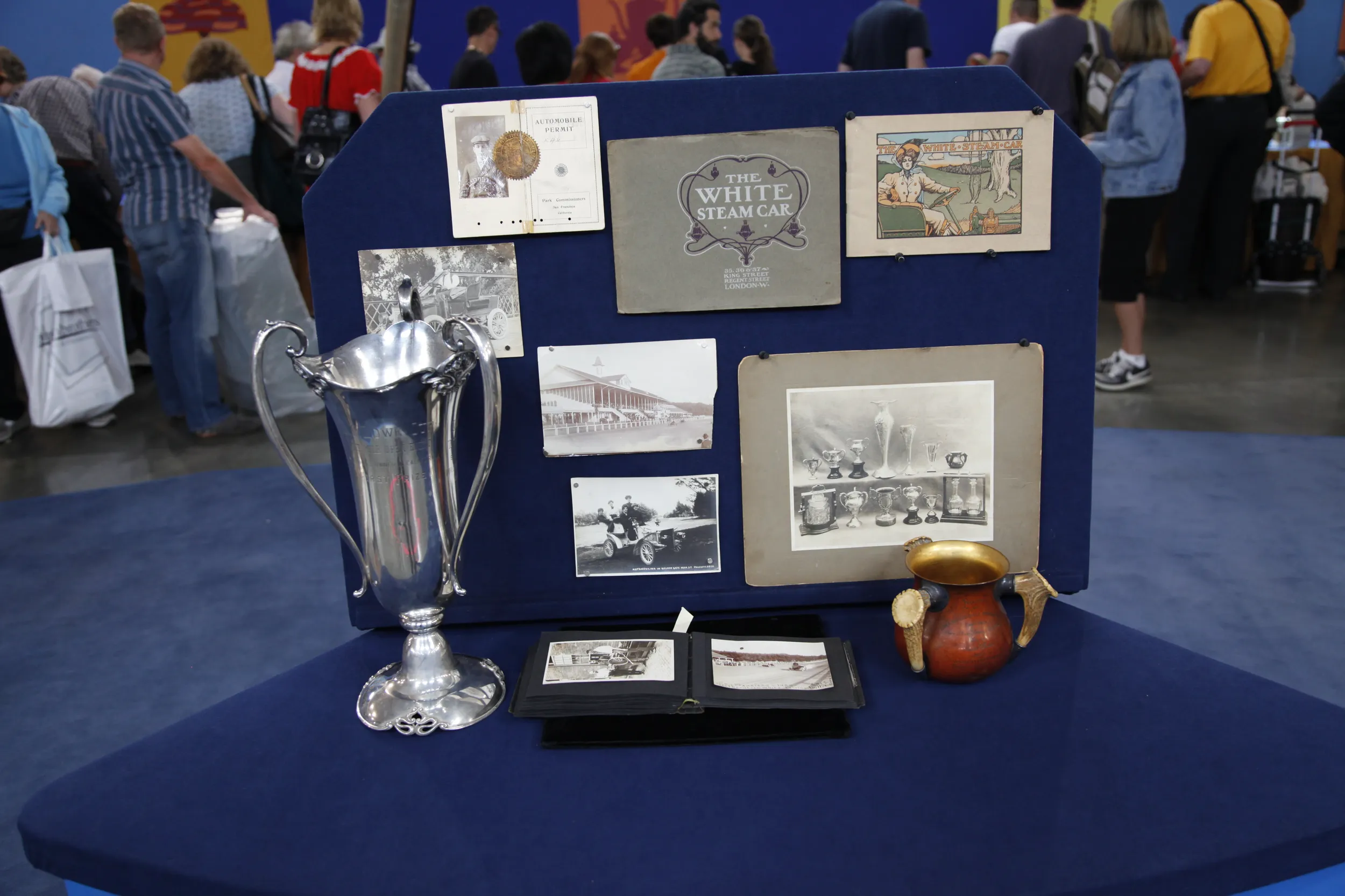GUEST: Clyde Milan is my, my grandfather.
APPRAISER: Right.
GUEST: He was recruited on the same trip that Walter Johnson was recruited on to play for the Washington Senators in 1907. They remained roommates on the road throughout their professional careers.
APPRAISER: Walter Johnson, of course, one of the winningest pitchers of all time, Hall-of-Fame pitcher.
GUEST: That's right, mm-hmm.
APPRAISER: What were, what were your grandfather's claims to fame for the Senators?
GUEST: Well, actually, uh, he was an outfielder for the Senators from 1907 till 1922, when he became a manager-player for the Senators.
APPRAISER: Got it.
GUEST: And, uh, in 1912, he actually held the Major League Baseball record for stolen bases. He had 88 that year.
APPRAISER: Beat out Ty Cobb.
GUEST: Yes.
APPRAISER: Hard to beat out Ty Cobb.
GUEST: It was. He spent his whole life in the, in baseball. He started in 1907. He died hitting ground balls in 1953 at the Washington Senators spring training, so he was their coach.
APPRAISER: I'd love to hear the story he would have to tell for this piece of paper, because, you know, you go through this scrapbook and you get all these fantastic photos from all his years. The caricatures of him, the time he was a manager. And then you run across this.
GUEST: Well, it's a petition that was signed by the players of the Cleveland Baseball Club, evidently in 1920, after one of their teammates, Ray Chapman, had been hit in the head with a baseball thrown by Carl Mays and, uh, killed.
APPRAISER: That's right, the only player ever in Major League history on the field to be killed.
GUEST: That's right.
APPRAISER: You know, Cleveland, unfort- you know, was very upset afterwards.
GUEST: Mm-hmm.
APPRAISER: But they were split-- their manager, Tris Speaker, did not want them to speak out, wanted the team to band together.
GUEST: Oh, really?
APPRAISER: But there were players on the team that you'll see here, including the pitcher of that game for Cleveland, Stan Coveleski...
GUEST: Ah!
APPRAISER: ...who signed this, saying they would not set foot in the field ever again if Carl Mays was going to set foot with them.
GUEST: That's what I heard.
APPRAISER: And several other teams, interestingly enough, the Red Sox, the Tigers, and the Senators, considered that, as well, and they almost thought to banish Carl Mays from baseball.
GUEST: Mm-hmm.
APPRAISER: But they did not-- in fact, he went on to win two seasons...
GUEST: That's right.
APPRAISER: ...26 and 27 games for the Yankees.
GUEST: Uh-huh.
APPRAISER: Before they let him go. Now, if you look at the scrapbook, and this-- we don't know why this was here.
GUEST: No, we, I have no idea how my grandfather ended up with it at all.
APPRAISER: Your grandfather, a great player, but not a Hall-of-Famer.
GUEST: No, no.
APPRAISER: Though, you have some original photos in here. If you kept the scrapbook the way it is, without this piece of paper...
GUEST: Mm-hmm.
APPRAISER: ...I'd put an auction estimate of $800 to $1,200 on it, okay?
GUEST: Okay, that's good.
APPRAISER: If you could actually pull some of the original early photos out...
GUEST: Mm-hmm.
APPRAISER: ...you could triple the value.
GUEST: Oh, really?
APPRAISER: Easily. But it's not gonna be easy to pull these out. This, I think, you could pull out. This in and of itself, because of its historical value...
GUEST: Mm-hmm.
APPRAISER: ...I'd put an auction estimate of $5,000 to $10,000 on it.
GUEST: Would you really? Oh, that's terrific!

